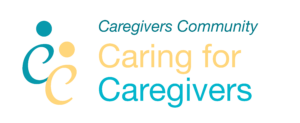** Edited by
Baha and Margaret Habashy
The Challenge
How do you avoid the risks of loneliness?
Caregivers face a double-edged isolation – physical and emotional. The lack of social life and support networks can take its toll. Shattering this isolation is vital for mental well-being, underscoring the need to forge and sustain a strong support system.
Meet Sal
Sal, a devoted single dad, faced an overwhelming journey caring for his quadriplegic son after a sports accident. Their home, once filled with laughter, now echoed with the weight of isolation. Days blurred into hospital visits and sleepless vigils; friends turned into fleeting shadows.
Sal yearned for connection, for a hand to hold when the nights were too long. Breaking free from the chains of loneliness, he bravely shared their story with the world. Slowly, a network of support emerged, weaving compassion around them. The once double-edged isolation began to dull, replaced by a symphony of shared burdens and joys.
As the sun dipped low in that quiet town, newfound friendships illuminated Sal’s path. In facing their challenge head-on, Sal discovered the resilience of the human spirit. Even in the darkest corners, the flicker of connection lit the way to a brighter tomorrow.
BIBLICAL INSIGHTS
Isaiah 41:10: “So do not fear, for I am with you; do not be dismayed, for I am your God. I will strengthen you and help you; I will uphold you with my righteous right hand.”
Caregivers can find solace in the assurance that they are not alone. This verse emphasizes divine companionship and support, offering caregivers the courage and strength to face the isolation and challenges they encounter.
Matthew 11:28-30: “Come to me, all you who are weary and burdened, and I will give you rest. Take my yoke upon you and learn from me, for I am gentle and humble in heart, and you will find rest for your souls. For my yoke is easy and my burden is light.”
Caregivers, weighed down by the demands of their role, can find comfort in these words. Jesus’ invitation to find rest in Him speaks to the need for caregivers to take moments of respite, trusting in a higher power to ease their burdens.
Psalm 46:1: “God is our refuge and strength, an ever-present help in trouble.”
This verse reinforces the idea that God is a constant source of refuge and strength. Caregivers facing double-edged isolation can find reassurance in knowing that they can turn to a dependable source of support in times of trouble.
Romans 15:13: “May the God of hope fill you with all joy and peace as you trust in him, so that you may overflow with hope by the power of the Holy Spirit.”
In the midst of caregiving challenges, this verse offers a prayer for caregivers to experience the uplifting power of hope, joy, and peace. Trusting in a higher purpose, caregivers can draw upon the Holy Spirit’s strength to sustain them in their journey.
THOUGHTS AND TIPS
- Build a Support Network: Example: Reach out to friends, family, or local caregiver support groups. Share your experiences and allow others to provide emotional support and practical advice.
- Prioritize Self-Care: Example: Set aside time each day for activities you enjoy, whether it’s reading, taking a short walk, or enjoying a hobby. Caring for yourself ensures you have the strength to care for others.
- Seek Professional Help: Example: Schedule regular check-ins with a therapist or counselor to discuss your emotional well-being and develop coping strategies for the challenges you face.
- Delegate Responsibilities: Example: Enlist the help of family and friends for specific tasks, such as grocery shopping, meal preparation, or household chores, to lighten your workload.
- Establish Routine and Boundaries: Example: Create a daily schedule that includes dedicated time for caregiving, self-care, and breaks. Set boundaries to avoid burnout and maintain a healthy work-life balance.
- Explore Respite Care Options: Example: Look into local respite care services that can provide temporary relief, allowing you to take a break and recharge.
- Stay Informed: Example: Keep abreast of medical updates and advancements related to your loved one’s condition. Knowledge empowers you to provide better care and advocate for their needs.
- Utilize Technology: Example: Explore apps or devices that can assist with medication reminders, appointment scheduling, and communication with healthcare providers for efficient caregiving.
- Encourage Independence: Example: Adapt the living environment to enhance your loved one’s independence, such as installing grab bars or utilizing assistive devices tailored to their needs.
- Foster Emotional Connection: Example: Engage in activities that strengthen your bond, like sharing memories, watching favorite movies together, or enjoying quiet moments of connection.
- Financial Planning: Example: Consult a financial advisor to explore available resources, insurance coverage, and potential financial assistance programs to alleviate the economic burden of caregiving.
- Educate Yourself: Example: Attend workshops or online courses to enhance your caregiving skills, gaining insights into effective communication, symptom management, and stress reduction.
- Stay Organized: Example: Maintain a centralized system for medical records, important contacts, and caregiving schedules to streamline tasks and reduce stress.
- Promote Physical Well-being: Example: Incorporate light exercises into your routine, like stretching or short walks, to improve your physical health and boost your energy levels.
- Celebrate Small Victories: Example: Acknowledge and celebrate achievements, no matter how small, to cultivate a positive atmosphere and maintain motivation in the caregiving journey.
- Plan for Emergencies: Example: Develop an emergency plan that includes contact information for healthcare providers, medications, and important documents, ensuring preparedness for unexpected situations.
- Stay Socially Connected: Example: Use technology to stay in touch with friends and family, whether through video calls, social media, or virtual gatherings, to combat the isolation often experienced by caregivers.
- Time Management: Example: Prioritize tasks based on urgency and importance, and delegate or postpone less critical responsibilities to manage your time effectively.
- Practice Mindfulness: Example: Incorporate mindfulness techniques, such as deep breathing or meditation, to reduce stress and stay present in the moment, fostering emotional well-being.
- Plan for Regular Breaks: Example: Schedule regular breaks throughout the day to step away, clear your mind, and engage in activities that bring you joy and relaxation, preventing caregiver burnout.
At our Community Forum you post your prayer requests, gain spiritual guidance, seek emotional support, and get answers to your caregiving questions. Moderated by qualified Christians, pastors, and healthcare professionals, it is our gift to serve you.
** Note: This blog content was developed with help from ChatGPT 3.5. The story, names and images are for illustration only.






Leave a Reply
Want to join the discussion?Feel free to contribute!